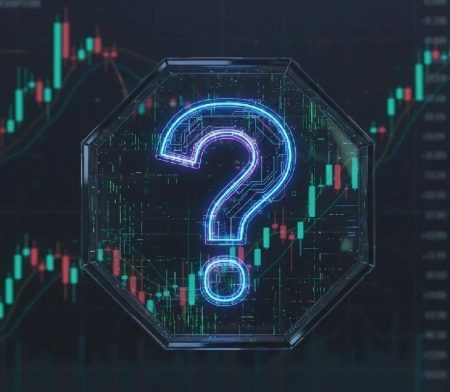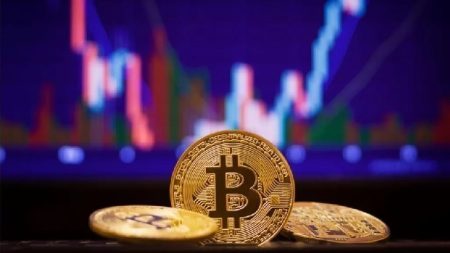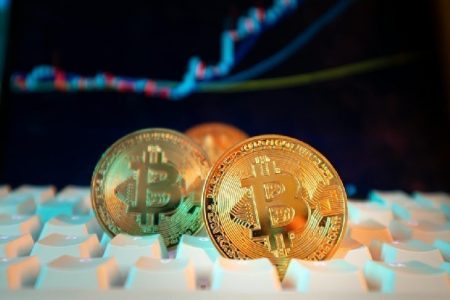GameStop Posts Narrower Q2 Loss Bolstered by Strategic Bitcoin Investment as Core Retail Sales Decline
Bitcoin Holdings Emerge as Financial Bright Spot Amid Challenging Retail Environment
In a significant financial pivot that reflects the evolving strategies of traditional retailers in the digital asset era, GameStop reported a narrowed second-quarter loss of $18.5 million, substantially aided by its recent foray into cryptocurrency investments. The video game retailer’s strategic acquisition of Bitcoin during the quarter ended August 2 represents one of the most notable corporate treasury diversifications into digital assets by a mainstream retail company, yielding unrealized gains that partially offset declining sales in its core business segments.
The company’s financial results reveal a complex picture of a retailer in transition, balancing traditional brick-and-mortar challenges against innovative balance sheet management. While GameStop’s revenue declined to $673.9 million from $732.4 million in the previous quarter, its substantial Bitcoin holdings—valued at $528.6 million at quarter-end—provided a crucial financial cushion. This 4,710 BTC position, initially purchased for $500 million, generated an unrealized gain of $28.6 million due to Bitcoin’s approximately 18% price appreciation since early May, according to the company’s regulatory filings.
“The narrower loss demonstrates how GameStop’s diversification strategy is beginning to yield results, even as the company navigates persistent headwinds in its traditional retail segments,” noted market analyst Sarah Reynolds, who follows specialty retailers. “The Bitcoin position essentially prevented what would have been a significantly worse quarter from a pure earnings perspective.”
Digital Asset Strategy Emerges as Revenue from Core Gaming Products Continues to Slide
The retailer’s core business segments continue to face significant challenges, with management citing softer hardware and software sales as the primary drivers behind the revenue decline. This downward trend reflects the ongoing digital transformation of the video game industry, where physical game sales have steadily lost market share to digital downloads and subscription services. Despite these challenges, GameStop’s collectibles division—comprising trading cards and pop-culture merchandise—demonstrated resilience, accounting for nearly one-third of total sales.
The Bitcoin acquisition represents part of a broader investment policy adopted earlier this year, financed through previous capital raises that included a substantial $2.7 billion convertible bond sale. This strategic reallocation of capital comes as the company seeks to reinvent itself amid dramatic shifts in consumer purchasing behavior. GameStop’s operating losses also narrowed slightly to $9.2 million from $10.8 million in the previous quarter, indicating modest improvements in operational efficiency primarily driven by reductions in selling, general, and administrative expenses.
“What we’re witnessing is a fascinating case study in corporate treasury management during retail transformation,” explained financial strategist Michael Chen. “GameStop is essentially hedging against weakness in its traditional business by allocating significant capital to an appreciating digital asset class. While unconventional for retailers, this approach has provided immediate financial benefits during a challenging quarter.”
Substantial Cash Reserves Provide Strategic Flexibility Despite Ongoing Retail Challenges
Despite the revenue challenges, GameStop maintains a formidable financial position with $6.1 billion in cash and equivalents, excluding its digital asset holdings. This substantial liquidity provides management with considerable strategic flexibility as they navigate the ongoing transformation of their business model. The company has also divested international operations in Canada and France during the reporting period, further streamlining its operational footprint as part of its broader capital optimization strategy.
The company’s approach to its Bitcoin holdings also provides insights into its financial management philosophy. GameStop disclosed that it uses Coinbase pricing to measure the fair value of its Bitcoin position at each reporting period, demonstrating a structured approach to digital asset accounting. This transparency around valuation methodology suggests the company is establishing rigorous governance frameworks around its cryptocurrency investments, potentially setting precedents for other public companies considering similar treasury diversification strategies.
Industry observers have noted that GameStop’s substantial cash position, combined with its Bitcoin holdings, creates an unusual financial profile for a specialty retailer. “The company now has more characteristics of an investment holding company than a pure retailer,” observed retail industry consultant Jennifer Martinez. “With over $6 billion in cash and more than half a billion in Bitcoin, GameStop’s balance sheet strength vastly exceeds what would be typical for its operational needs, suggesting management is positioning for a major strategic pivot or acquisition.”
Investment Community Divided on Long-Term Implications of GameStop’s Bitcoin Strategy
The investment community remains divided on the long-term implications of GameStop’s Bitcoin strategy. Bulls point to the immediate financial benefits and potential for further appreciation of the digital asset position, while bears question whether capital allocation toward cryptocurrency represents an acknowledgment of limited growth opportunities in the core retail business.
“There’s a philosophical debate happening about whether this represents brilliant financial management or a concerning signal about the future of physical game retail,” said investment strategist William Torres. “The $28.6 million unrealized gain certainly helped this quarter’s results, but the volatility inherent in cryptocurrency holdings introduces a new risk dimension that traditional retail investors may find challenging to evaluate.”
The company’s financial approach also raises questions about potential future expansion of its digital asset strategy. With substantial remaining cash reserves and a precedent now established for cryptocurrency treasury management, market participants are speculating whether GameStop might increase its Bitcoin allocation or diversify into other digital assets. Such moves would further distinguish the company’s financial profile from traditional specialty retailers and potentially attract a different investor base focused on cryptocurrency exposure through public equities.
Looking Forward: Market Will Monitor Bitcoin Valuation Impacts and Core Business Trends
As GameStop moves forward, investors will closely monitor both the performance of its Bitcoin holdings and trends in its traditional retail segments. The company’s financial results will now be subject to two distinct forces: the operational challenges of physical game retail and the market dynamics of cryptocurrency valuations. This unique combination creates a complex investment case that defies conventional retail analysis frameworks.
The substantial unrealized gain from Bitcoin holdings during Q2 demonstrates how cryptocurrency valuation changes can materially impact GameStop’s financial results. With Bitcoin’s notorious price volatility, future quarters could see significant swings in reported earnings based solely on digital asset revaluations, potentially masking underlying trends in the core business. This dynamic will require investors to carefully disaggregate cryptocurrency effects from retail performance when evaluating the company’s financial health.
Industry analysts expect GameStop management to provide additional clarity on its long-term strategic vision, particularly regarding the balance between retail operations and digital asset investments. The narrower Q2 loss represents a positive short-term development, but questions remain about sustainable profitability in the core business absent cryptocurrency gains. As GameStop continues to evolve its business model, the market will be watching for signs of stabilization in traditional revenue streams alongside its innovative balance sheet management approach.













